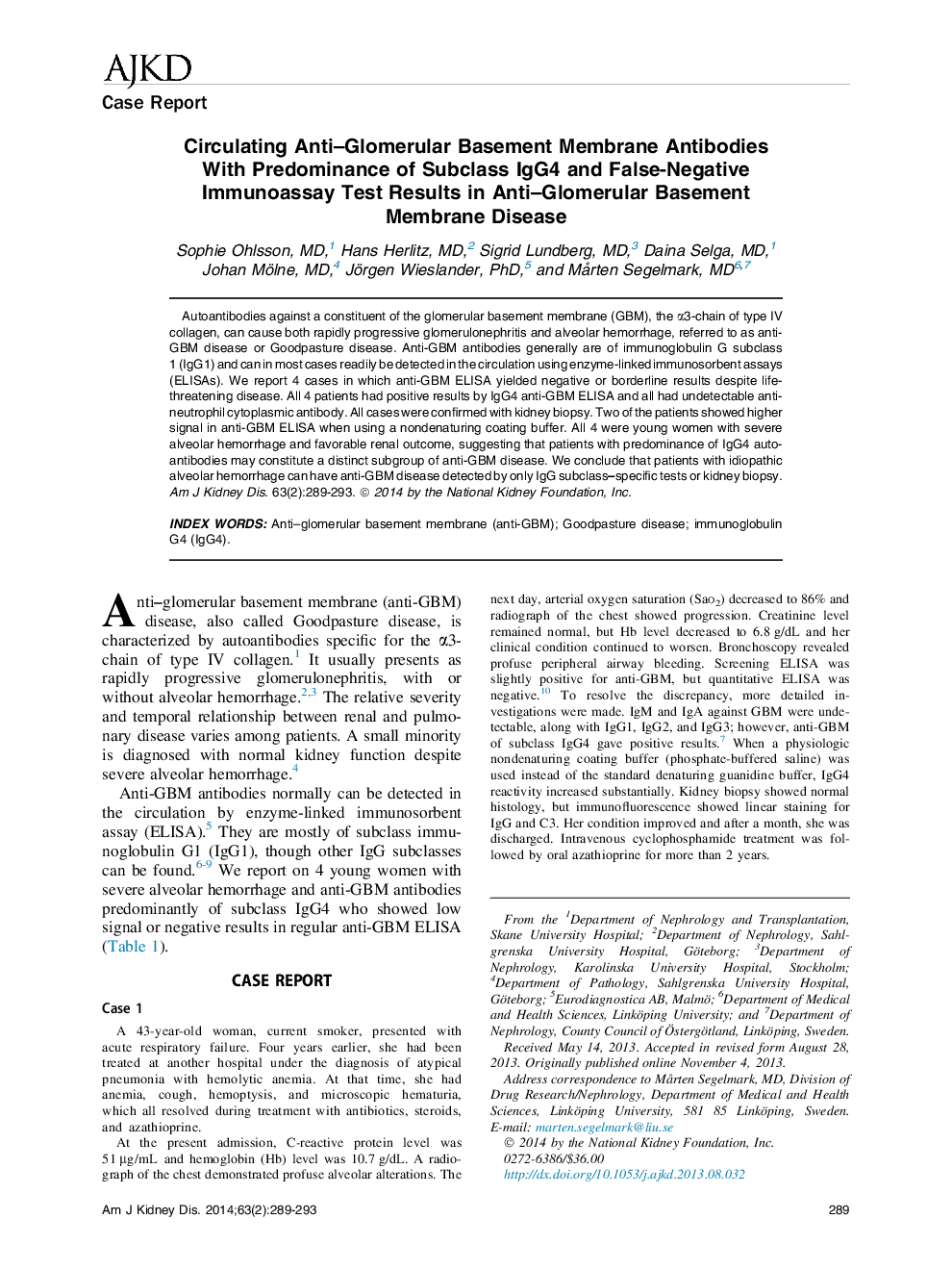| Article ID | Journal | Published Year | Pages | File Type |
|---|---|---|---|---|
| 3848029 | American Journal of Kidney Diseases | 2014 | 5 Pages |
Abstract
Autoantibodies against a constituent of the glomerular basement membrane (GBM), the α3-chain of type IV collagen, can cause both rapidly progressive glomerulonephritis and alveolar hemorrhage, referred to as anti-GBM disease or Goodpasture disease. Anti-GBM antibodies generally are of immunoglobulin G subclass 1 (IgG1) and can in most cases readily be detected in the circulation using enzyme-linked immunosorbent assays (ELISAs). We report 4 cases in which anti-GBM ELISA yielded negative or borderline results despite life-threatening disease. All 4 patients had positive results by IgG4 anti-GBM ELISA and all had undetectable antineutrophil cytoplasmic antibody. All cases were confirmed with kidney biopsy. Two of the patients showed higher signal in anti-GBM ELISA when using a nondenaturing coating buffer. All 4 were young women with severe alveolar hemorrhage and favorable renal outcome, suggesting that patients with predominance of IgG4 autoantibodies may constitute a distinct subgroup of anti-GBM disease. We conclude that patients with idiopathic alveolar hemorrhage can have anti-GBM disease detected by only IgG subclass-specific tests or kidney biopsy.
Related Topics
Health Sciences
Medicine and Dentistry
Nephrology
Authors
Sophie MD, Hans MD, Sigrid MD, Daina MD, Johan MD, Jörgen PhD, MÃ¥rten MD,
